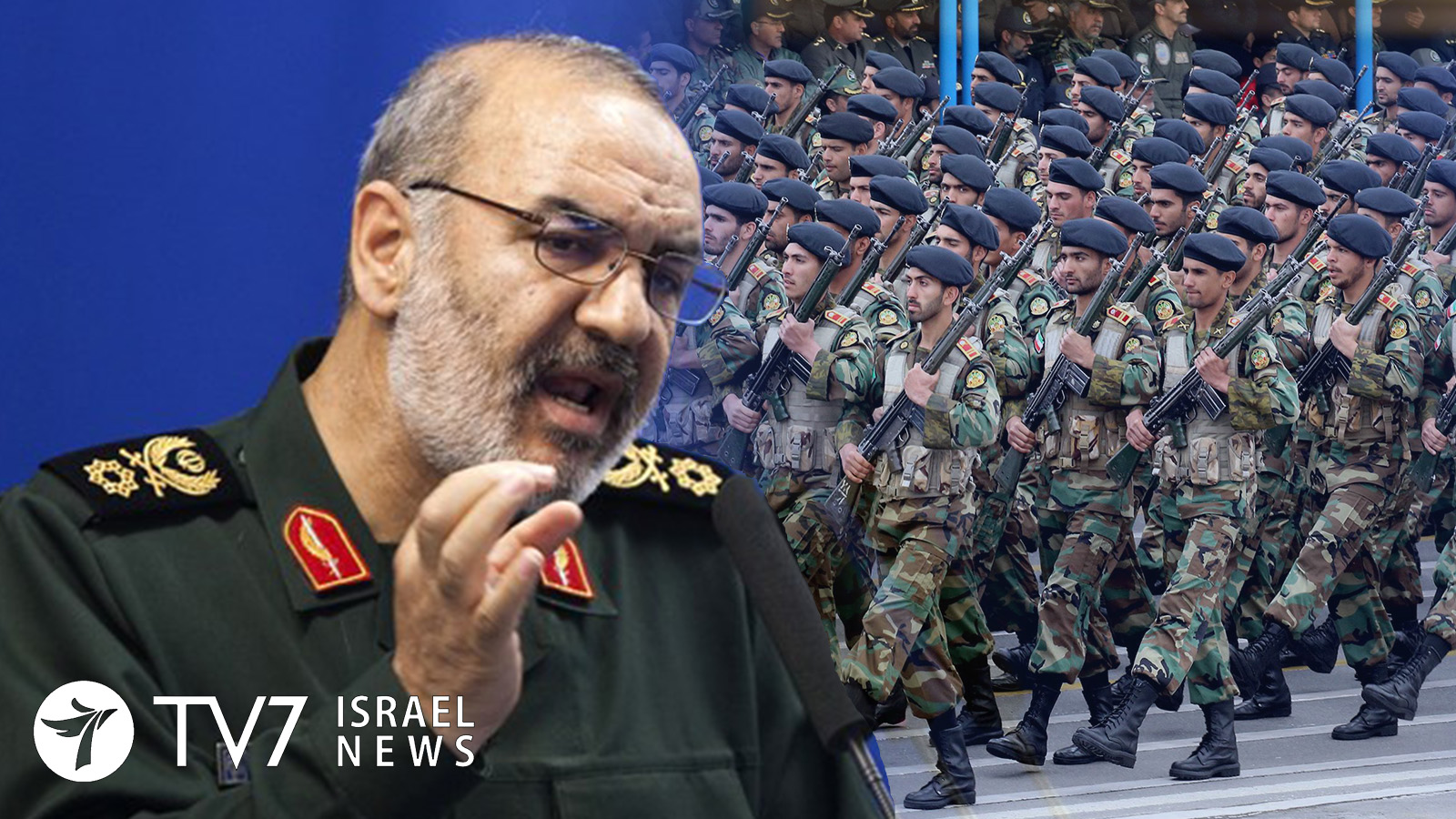The Islamic Republic of Iran vowed to defeat what its top defense official termed “the American-Zionist front,” as tensions between Washington and Tehran continue to mount.
Multiple Iranian news agencies published remarks that were made by Iranian Defense Minister Amir Hatami, who sought to signal ‘Tehran’s readiness’ for any possible development by underlining that “the Islamic Republic of Iran stands at the peak of defense-military preparedness to counter any threat or act of aggression.”
General Hatami further insisted that the Trump Administration’s pressure campaign against the Ayatollah regime was nothing short of a declaration of war. He said that after numerous failed attempts to subdue Tehran by means of “malicious plots”… “the Americans embarked on waging a severe, all-out war on (the Islamic Republic) by means of economic tools.” The Iranian Defense Minister vowed that these efforts will fail, and that eventually: ‘the Islamic Republic will defeat its enemies: The United States, Israel and its allies.’
In related news, the Islamic Revolutionary Guards Corp held a meeting of its top military commanders in Tehran, during which the IRGC commander warned that Iran is “on the verge of a full-scale (military) confrontation.” The recently appointed commander of the IRGC, Major General Hossein Salami, cautioned his subordinates that the current escalation has presented “the most decisive moment for the Islamic Revolution, because the enemies (of Iran) have come to the battlefield with all of their capabilities.” That said, Salami insisted that the Islamic Republic will prevail.
Meanwhile, Washington has ordered all non-emergency government workers to immediately leave Iran’s Western neighbor, Iraq. A U.S. State Department spokesperson said, “the withdrawal was based on a security assessment” – which according to Pentagon sources ‘intelligence reports suggest that Iranian-backed militias in Iraq (which follow the directives of the IRGC’s Quds Force) have deployed rockets near bases housing U.S. forces.’
Fearing an imminent escalation, Iraqi officials have urged the Iranian-backed militias, specifically “the Popular Mobilization forces” – “al-Hashd Ash-Sha’abi” in Arabic – to refrain from taking any action that could provoke American retaliation. According to senior member of Iraq’s National Security Council Sayed al-Jayashi, over the course of “The last two days there have been continuous meetings with all the groups to convey the Iraqi government’s message that if anyone does something, it is their responsibility, not Iraq’s.” Al-Jayashi further underscored that “The Iraqi government is responsible for protecting American interests in Iraq,” and as such “(Baghdad) will become the enemy of anyone who does something against (U.S) interest.”
U.S. President Donald Trump held a meeting with Swiss president Ueli Maurer, amid multiple reports that the Swiss government may facilities discussions between the United States and the Islamic Republic of Iran over recent the ongoing stand-off. While awaiting the arrival of his Swiss counterpart, President Trump was asked whether the United States was going to war with Iran, he responded by saying: “I hope not.”
Trump’s apparent reluctance to discipline Iran over its malign behavior by means of a military confrontation has boosted the confidence of the Mullah’s in Tehran, including the country’s Supreme Leader Ayatollah Ali Khamenei, who sought to reassure his followers – earlier this week – that an ‘all-out-war was off the table’. That said, the Iranian leadership is vocally adamant on refusing “any form of negotiations with the United States.”
Nevertheless, the United States is apparently making extensive efforts to alleviate the situation in-order to avoid a military escalation. According to a state Department statement, Secretary of State Mike Pompeo called the leader of Oman, Sultan Qaboos bin Said, to confer about the threat posed by the Islamic Republic. No additional details were available from their phone conversation. It is important to explain, however, that the Sultanate of Oman has served as a long intermediary between the West and the Islamic Republic. Among others, it served as the host state of secret discussions in 2013, when the United States – under the Obama administration – was negotiating the 2015 nuclear agreement with Iran.
Picking-up on Washington’s efforts to seek a diplomatic-channel for talks with Iran; Russian president Vladimir Putin said that Moscow is ready to assist both the United States and Europe in mediating a desired agreement. During a joint press conference with his Austrian Counterpart Alexander Van Der Bellen, President Putin stressed that Russia will seek to extinguish the flames, if the United States and Europe are be sincere about their intensions. According to the Russian President, “We will look at how the situation develops. Russia is not a fire brigade, we cannot save just anything, which does not fully depend on us. We have played our role, we are ready to play on this positive role. But it does not only depend on us. It depends on all the players, including the United States, European countries and Iran.”
President Putin also insisted that while the United States instigated the tense situation by withdrawing from the 2015 nuclear treaty, Iran will ultimately be subject to bearing responsibility if it abandon’s the multilateral agreement. “The Americans quit the (nuclear) treaty, the treaty is collapsing, European countries are unable to do anything to save it, cannot really work with Iran to compensate its economic losses. But as soon as Iran takes the first steps in response, will declare that it quits something, the very next day everyone will forget that it were the United States who initiated the destruction (of the treaty) and burden of guilt will be laid upon Iran,” Putin said.
Iran has officially stopped some commitments under the 2015 nuclear deal with world powers following an order from its national security council – less than a week after the Islamic Republic notified China, France, Germany, Russia and the United Kingdom of its decision, in response to Europe’s failed attempts to bypass U.S. sanctions that effectively crippled Tehran’s economy.
